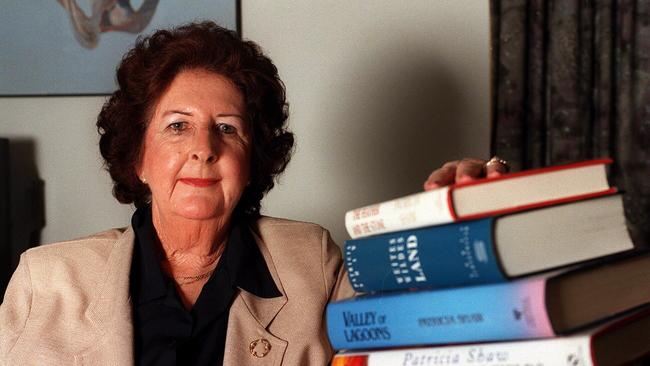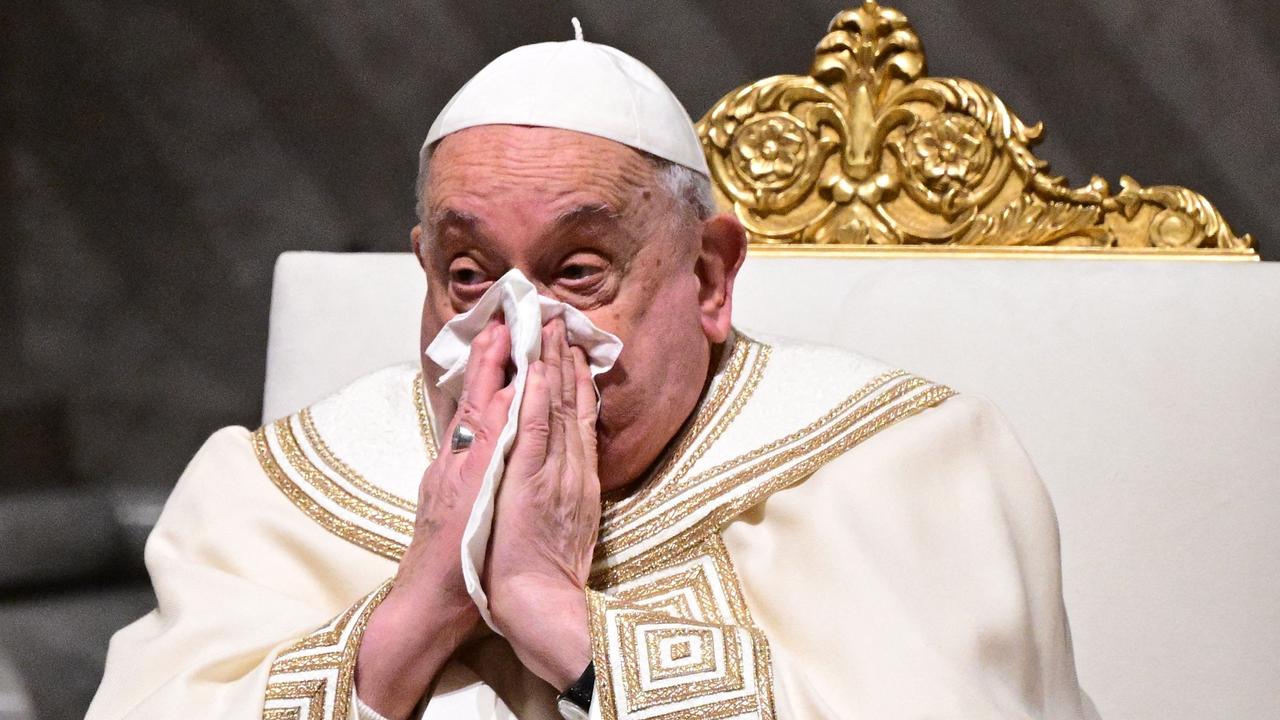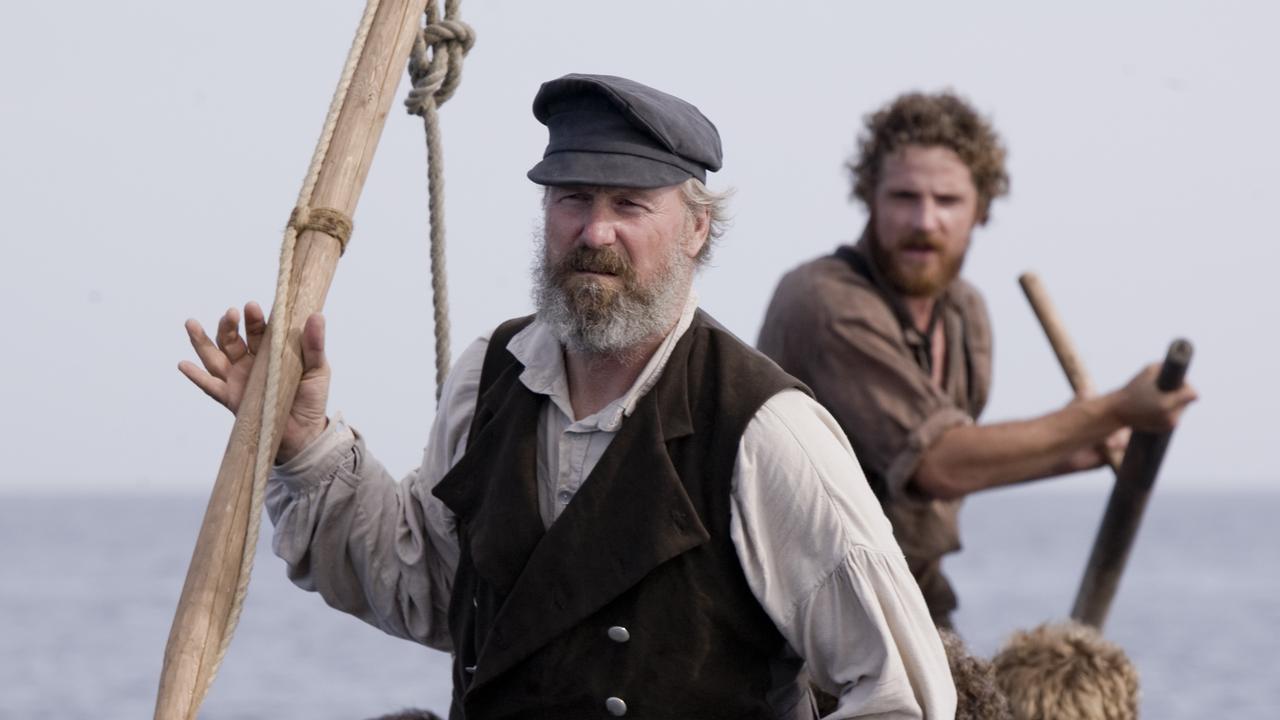Patricia Shaw was a literary superstar abroad, barely known at home
Patricia Shaw told compelling stories of Australians, generally set against the backdrop of 19th-century harshness. But we weren’t listening.

OBITUARY
Patricia Shaw Author
Born Melbourne, May 26, 1928; died Paradise Point, Gold Coast, July 25, aged 96.
A poll taken several years ago found 80 per cent of us agreed that telling Australian stories was key to our sense of national identity.
It must have surprised Patricia Shaw. For years she told compelling stories of Australians, generally set against the backdrop of 19th-century harshness. But we weren’t listening. Our literati were particularly deaf to Shaw’s work.
In the 1990s Shaw went to a Ken Follett book signing at the Frankfurt Book Fair, the world’s largest. She bought a copy of his book and was ushered to his desk for an autograph. One of his publisher’s staff must have worded up Follett, one of the world’s most successful authors, about the anonymous woman in the queue: “I believe you write books … I haven’t heard of you, but I’ll keep an eye out.”
Soon after, Shaw’s German publisher sent her Europe’s bestseller list. She was at No.1. The book Follett had signed for her was at No. 15. Frederick Forsyth was lower.
She was particularly successful in Germany, ever since her first novel, Valley of Lagoons, published in 1989. It is a tale of a mixed boatload of convicts and a few fee-paying opportunists who seek a change of fortune in an Australia not 50 years old. One of them sees a short cut to wealth by claiming tracts of land on which to graze cattle. A now penniless aristocrat, this detestable thimblerigger steals and cheats, making enemies and ruining lives. Strong, resilient women emerge and survive across the Dorothea Mackellar landscape.
By the time it was published, Shaw was almost 60, long divorced and with two children.
Hers had been a swerving, arduous path through life, the starting point of which had been her father’s pub, The Royal, in Koo Wee Rup, about 65km southeast of Melbourne. She was Patricia Daniher then, part of the now-famous AFL family, members of which, across two generations, have played more than 800 games.
It was far from hardscrabble; Shaw’s dad’s main income was from bookmaking. He sent her to Star of the Sea College in Melbourne’s up-market Brighton a few years before another better known but less successful author, Germaine Greer.
Single and living on the Gold Coast where the family had settled in the mid-1950s, she found work as electoral secretary for Eric Robinson, a cabinet member of the Fraser government who died suddenly, aged 51, in 1981.
On a widow’s pension she started on some freelance writing while interviewing politicians across Queensland for federal parliament’s oral history project. While volunteering to protect native birds, she completed a course in English by correspondence, brushing up her writing skills.
She had met a gardener, a returned soldier who, during time as a POW, had learned to speak German. She was fascinated by his tales and told him so: “Oh, you want to talk to me brothers.” And what tales the five Sullivan brothers – country lads from Toowoomba – had to tell. Their war stories sounded like a brutal travelogue in which people tried to kill them at every stop: Tobruk, the Burma Railway, Milne Bay, the fall of Singapore, Changi, Stalags.
The compelling marriage of hardship and mateship proved irresistible. It was published in 1984 and well received and sold modestly. Growing in confidence, and moving from pen and paper to a typewriter, Shaw started on Valley of Lagoons and from then on wrote a novel a year – River of the Sun (1991) and The Feather and the Stone (1992) following quickly. Australians took little interest in them, but they found significant success in Europe. It is estimated that she has sold 20 million books.
She won a book prize in Germany and often starred at Frankfurt. The son of the boss of the giant Bertelsmann publishing group would pick her up in a limo. One year they drove under a banner bearing her name and that of her latest book.
Her books appeared in 15 countries and in many languages. She kept these foreign editions at her home on the Gold Coast where there hung an original illustration of her by this newspaper’s then cartoonist, Bill Leak. An old friend once painted her for the Archibald Prize. She bought it from the artist but never liked it. No one saw it again.
Her stories were set in every state of Australia except Tasmania. Her friend Pauline Clayton once asked why not: “Europeans don’t want to read about cold places.”



